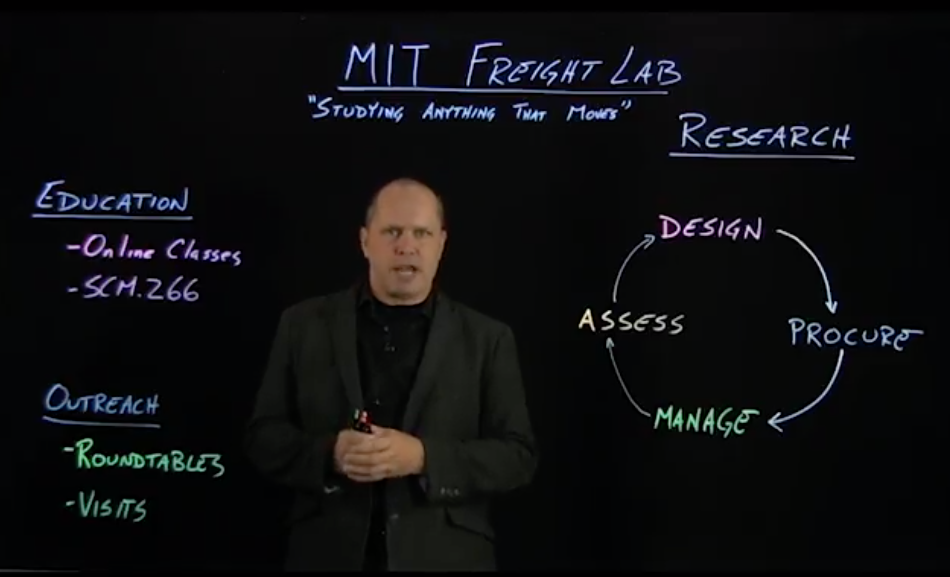Innovation in the freight transportation industry
The MIT FreightLab’s mission is to drive innovation into the freight transportation industry in order to reduce cost, minimize risk, and increase level of service. Freight transportation is subject to highly volatile demand and costs that are typically outside of a firm’s ability to control or even influence. This is compounded by a dominant design in terms of how freight is historically procured and managed. FreightLab research focuses on working with companies to develop and implement real-world solutions to these challenges.
Managing uncertainty in freight transportation
FreightLab objectives are to develop innovations in freight transportation planning and operations and drive them into practice. Recently, we have developed methods for forecasting both short term spot-market rates and longer-term contract rates. We are exploring alternative contract forms between shippers and carriers that increase the level of trust in the relationship and yield better results for both parties. Working with a wide range of shippers, carriers, and third-party providers, the freight lab team develops and delivers better ways to design, procure, and manage large-scale freight transportation systems.
Other recent work has included:
- Optimal Network Flow – Working with a leading retail restaurant chain, researchers explored how to leverage different distribution and flow channel configurations to lower the total cost, increase the level of service, and minimize the risk of disruption
- Transportation Portfolio Management – Working with Wal-Mart Stores, the research team designed and developed a planning tool for optimally determining how to use different transportation resources across a freight network. The optimization model considers the demand uncertainty in its lane assignment
- Transportation Pricing – A number of studies have been conducted to quantify the impact of various business policies on transportation pricing
- Fuel Cost Uncertainty – Fuel surcharges and hedging have been studied to understand the larger effects on transportation pricing and service
- Transportation Planning and Management Systems – FreightLab has conducted a number of analyses examining the gap between planning and execution systems
- Transportation Infrastructure – Working with both state and federal government transportation agencies, FreightLab has examined how to make transportation networks more resilient and how to design future freight networks
- Global Ocean Transportation Reliability Initiative – Working with several shippers as well as data providers, FreightLab has looked to quantify the impact of ocean transportation variability on supply chain costs. Data for this project was provided by ImportGenius.com, which captures transaction-level imports data maintained by the US Customs.

